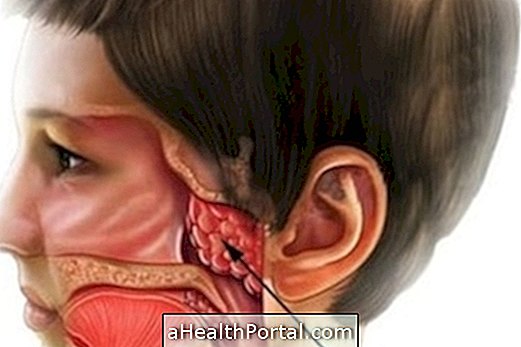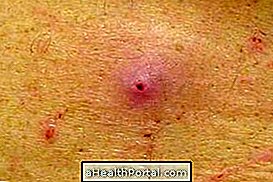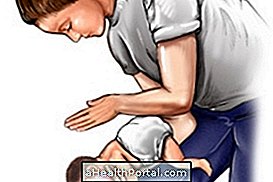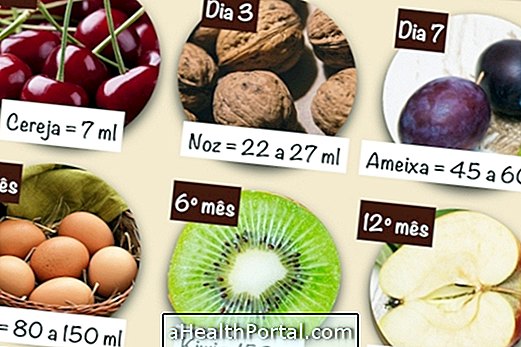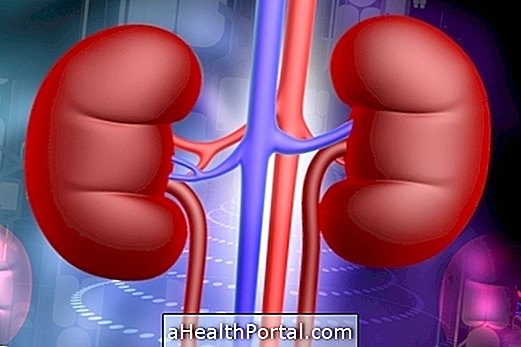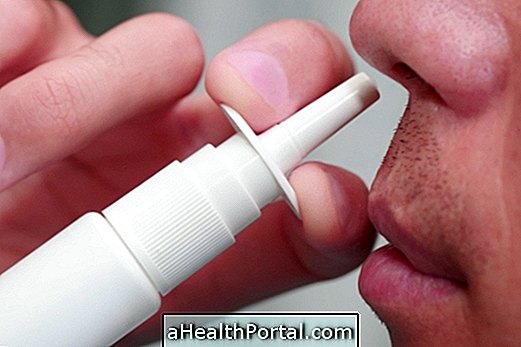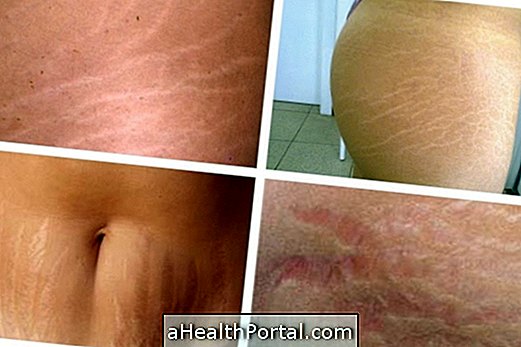The main forms of hepatitis transmission are intimate contact without a condom, contact with the blood, some contaminated secretions or sharp objects, and even the consumption of contaminated food or water.
And so to prevent viral hepatitis it is advised to avoid all these factors and take the existing vaccines to prevent the development of hepatitis, an inflammation in the liver that can be chronic and increases the risk of cirrhosis and liver cancer for example.
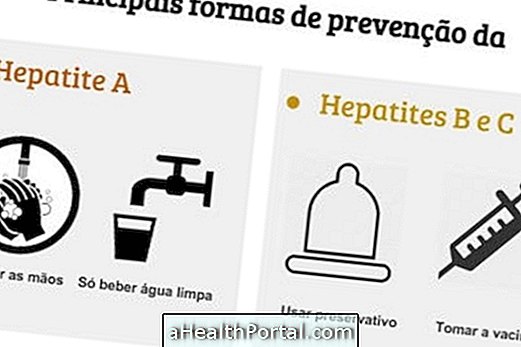
How to prevent hepatitis A
The transmission of hepatitis A occurs through ingestion of the virus found in water, food or stool from infected persons. In this way, a contaminated individual can pass the disease to others when with his hands dirty of small particles of feces, manipulates foods that will be ingested by others.
Contamination also occurs when there is a lack of basic sanitation. Contaminated faeces reach rivers, springs or even plantations, so it is common for many people to be infected with hepatitis A.
To avoid contamination with the hepatitis A virus it is recommended:
- Take the vaccine against hepatitis A, according to the recommendations of the Ministry of Health;
- Have good hygiene habits by thoroughly washing your hands before eating and after using the bathroom. Here's how to wash your hands thoroughly.
- Avoid raw foods and disinfect food well before eating, leaving food soaked in chlorinated water for 10 minutes;
- Prefer cooked or grilled foods because so the viruses are eliminated;
- Drink only drinking water : mineral, filtered or boiled and take the same care when making juices, and avoid the consumption of water, juice, popsicle, ice cream and salads that may have been prepared under poor hygienic conditions.
People at higher risk of contracting the hepatitis A virus are carriers of hepatitis C, residents of regions with poor sanitation and children, and when they are infected, increase the risk of contaminating parents, siblings and teachers.
How to prevent hepatitis B and C
Hepatitis B and C transmission occurs through contact with contaminated blood or secretions. That way whenever the blood or vaginal and penile secretions of a person with hepatitis B come in direct contact with open wounds or small blood vessels, the other can be contaminated.
To prevent hepatitis B and C it is advised to:
- Take the hepatitis B vaccine, although there is still no vaccine against hepatitis C;
- Use a condom in every intimate contact;
- Require new disposable material whenever performing piercings, tattoos and acupuncture;
- Do not use injectable drugs or use sterile material;
- Do not share personal objects with manicure kit and razor blade;
- Always wear disposable gloves if you are to help or treat someone else's wounds.
Hepatitis B and C can also be transmitted by healthcare professionals such as a doctor, nurse or dentist, when he is infected and does not follow all safety regulations such as wearing gloves whenever he comes in contact with blood, secretions or using instruments that can cut the skin, for example.
Why hepatitis should be avoided
Hepatitis is an inflammation of the liver, which does not always show symptoms and so the person may be contaminated and pass the disease on to others. Thus, it is recommended that everyone follow these safety standards throughout their lives to avoid being contaminated and transmitting hepatitis to others.
Hepatitis is an inflammation of the liver that, even if it is properly treated, does not always have a cure, and this increases the risk of liver complications such as cirrhosis, ascites and liver cancer, for example.

